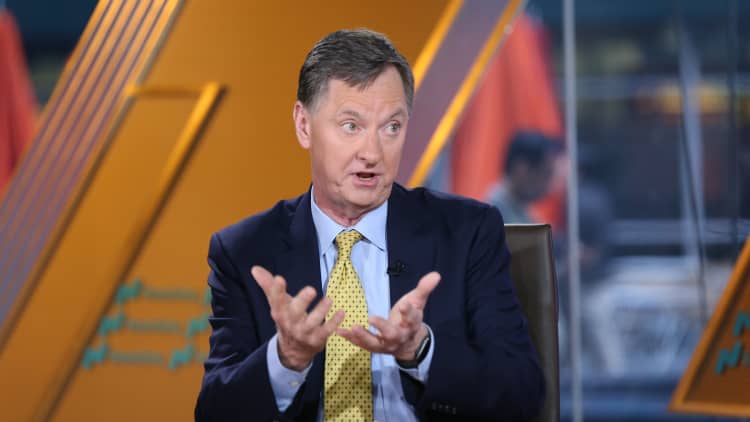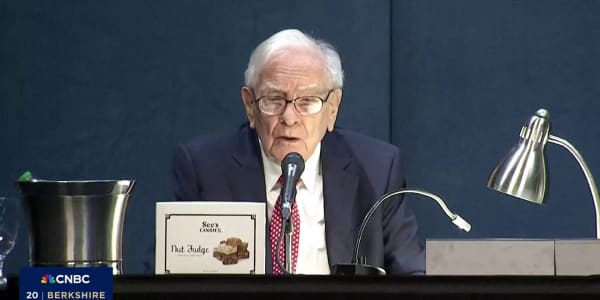
Chicago Fed President Charles Evans said Tuesday that low inflation, along with economic uncertainty, indicate a need for up to two rate cuts before the end of 2019.
Evans spoke Tuesday at CNBC's @Work Human Capital + Finance Conference in Chicago.
He added that two rate cuts may not even be enough over the longer run as the Fed grapples with consistently low inflation as well as tensions over trade and a slowing global economy.
In an interview with CNBC's Steve Liesman, Evans said he would advocate multiple rate cuts, which market participants are widely expecting.
"Unless I had great reason to think that that would somehow create a lot of inflation, yes, I think that's right," he said. "I think on the basis of inflation alone, I could feel confident in arguing for a couple of rate cuts before the end of the year."
This comes shortly after Fed Chairman Jerome Powell said in Paris that the central bank remains committed to sustaining the economic expansion and will "act as appropriate" to see that through. The language has generally been interpreted as a tip toward a rate cut coming at the July 30–31 Federal Open Market Committee policy meeting.
Despite generally solid economic data, markets have been looking for rate cuts to keep competitive with other easing global central banks and a raft of "uncertainties," as Powell put it, that are cropping up at home and abroad.
Evans, who is a voting member on the FOMC this year, emphasized the importance of getting inflation to the Fed's 2% target, which it considers healthy for a growing economy, and said he would even like to see a slight overshoot.
"In order to get inflation up to 2.25% over the next three years, I need 50 basis points of more accommodation," he said. "Maybe that's not quite enough. I think that would increase inflation expectations, and that would help."
It's not just markets that have been clamoring for a rate cut. President Donald Trump also has been pressuring the Fed to ease up on policy and has said that without the nine rate hikes since December 2015, the economy would be much stronger than even its current above-trend pace.
Evans said it's important that the Fed remain independent from political pressure, though he conceded that the economy might be running hotter without the rate hikes.
"It would have been stronger if we hadn't raised rates — there can be an argument for that," he said. "We've gotta be very careful on how you think about it, and there's so much going on. I think the risk-management argument is a good one."






